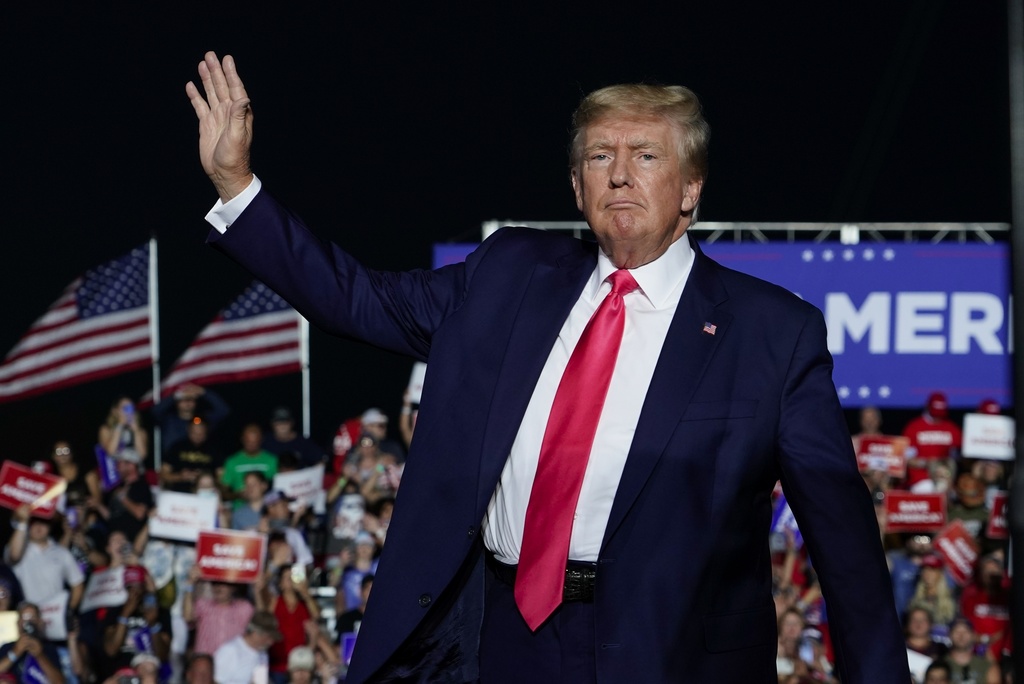Are we training a workforce to be stupid? From making decisions on the basis of a couple flashy lecture slides to ignoring problems outright so as not to interfere with the positive tone of a workplace, functional stupidity, our guest argues, has a place in the business world. It helps and it hurts. We find out more. We also delve into the fascinating history of our scariest holiday, and find out where each of the presidential candidates stand on issues that affect Wisconsin, in particular.
Featured in this Show
-
Where The Presidential Candidates Stand On Wisconsin Issues
The presidential candidates’ character and stance on issues around the country and the world has come up a lot. We talk to a reporter who asked each campaign about where each candidate stands on regional issues that affect Wisconsin, from the dairy industry to SeniorCare.
-
The History Behind Halloween
Halloween isn’t just about trick-or-treating, bobbing for apples, or uncomfortable costumes. We’ll learn about the ancient roots of the spooky holiday with Professor Tim McMahon of Marquette University.
-
Ancient Roots Of Halloween Rooted In Mix Of Cultures
Before it was a child-friendly activity characterized by trick-or-treating, Halloween was a holiday marking the end of one season and the start of another.
The holiday at the end of October has its roots in the ancient Celtic festival of Samhain, which means “end of summer,” said Tim McMahon, associate history professor at Marquette University and American Conference on Irish Studies vice president.
“It’s the end of the harvest, the days are getting shorter. And it’s sort of this liminal time when the dead may walk, because the season of life is coming to an end and the long winter is coming,” McMahon said.
Historians say when the ancient Celts celebrated the festival, many people would light bonfires and wear costumes to ward off any roaming ghosts. In celebrating Samhain, it was common for people to leave food or sustenance outside one’s door as protection, McMahon said.
Halloween wasn’t alone in honoring the dead just before the start of fall, McMahon said, the Roman Empire also had a day for honoring the dead around the same time of the year. But as with many modern holidays, Halloween is a product of a mix of sources, and was heavily influenced by the spread of Christianity.
“A lot of the Christian holidays are, in a sense, built onto these pre-existing calendar customs,” he said.
In the eighth century, Pope Gregory III designated Nov.1 as All Saints’ Day, which McMahon said was a way to honor the dead in a more Christian tradition at roughly the same time of year as Samhain.
“This all blends together,” he said. “What we call Halloween is All Hallow’s Eve – the night before All Saints (Day.) A lot of the traditions … of dressing up in a mask to ward off the evil spirits that are walking that one might have seen in a Samhain festival, becomes more regularized as a Halloween tradition.”
So what led up to Halloween’s more familiar American iteration? McMahon said the holiday made its way across the Atlantic through European immigrants from various countries, especially in the mid 19th century in the wake of the Irish famine, and put roots down in the United States.
“The idea of moving house-to-house dressed in costume and either offering a trick, or warding off you doing a trick in exchange of you getting something to eat became the tradition around Oct. 31,” McMahon said.
It wasn’t until after the baby boom, though, that the holiday almost exclusively became about treats. With a multiplying number of young people and a robust advertising industry, communities were able to develop Oct. 31 into a family-friendly holiday.
“Over time, communities basically started to regularize and police (Halloween) and then turn it into more of a children’s or a family holiday,” McMahon said. “(It) really took off during the baby boom …when you’ve gotten this huge number of young people and mass marketing for children and families at the time.”
-
How Organizations Make Smart People Stupid
Many businesses and other organizations have a surpising ability to hire smart, energetic employees–and train them to be uncreative and unintelligent on the job. That’s according to the author of a new book on the “stupidity paradox.”
Episode Credits
- Rob Ferrett Host
- Veronica Rueckert Host
- Haleema Shah Producer
- J. Carlisle Larsen Producer
- Rob Ferrett Producer
- Jason Stein Guest
- Tim McMahon Guest
- Andre Spicer Guest
Wisconsin Public Radio, © Copyright 2024, Board of Regents of the University of Wisconsin System and Wisconsin Educational Communications Board.

